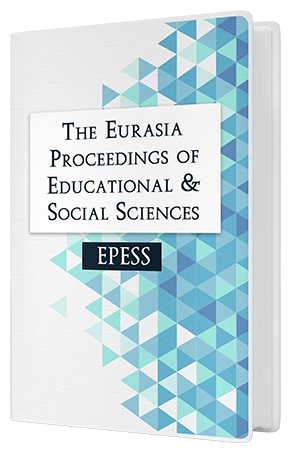THE PREDICTIVE EFFECTS OF ENGAGEMENT IN SCIENCE LESSONS AND ATTITUDES TOWARD SCIENCE ON SOUTHEAST ASIAN GRADE 8 STUDENTS’ SCIENCE ACHIEVEMENT IN TIMSS 2015
Keywords:
Engagement in science lessons, attitudes toward science; science achievement, TIMSSAbstract
This study explored the predictive effects of students’ engagement in science lessons and attitudes toward science on science achievement among Southeast Asian eighth graders in TIMSS 2015. In this study, students’ views on engaging teaching in science lessons, students’ interest in and liking of learning science, understanding about the importance of and the usefulness of the subjects (attainment value and utility value), and self-confidence or self-concept in their ability to learn science were measured. Data were obtained from 9,726 Malaysian students, 6,116 Singaporean students, and 6,482 Thai students who participated in TIMSS 2015. The results of the present study indicated that Southeast Asian eighth graders’ views on engaging teaching in science lessons, liking, valuing, and confidence in learning science were positively and significantly associated with their science achievement in TIMSS 2015 except for the relationship between students confidence in science with science achievement for Malaysian samples. Southeast Asian eighth graders’ liking, valuing, and confidence in science also showed significant predictive effects on their science achievement except for Malaysian grade 8 students’ confidence in science which showed an inverse contribution to science achievement. On the other hand, Malaysian and Thai female students scored significantly higher than their male counterparts on the TIMSS 2015 science assessment. This study provides information on prerequisites of Southeast Asian students’ science learning. Implications of the findings for educational policy and practice are discussed.Downloads
Published
Issue
Section
License
Copyright (c) 2017 The Eurasia Proceedings of Educational and Social Sciences

This work is licensed under a Creative Commons Attribution-NonCommercial-ShareAlike 4.0 International License.
The articles may be used for research, teaching, and private study purposes. Any substantial or systematic reproduction, redistribution, reselling, loan, sub-licensing, systematic supply, or distribution in any form to anyone is expressly forbidden. Authors alone are responsible for the contents of their articles. The journal owns the copyright of the articles. The publisher shall not be liable for any loss, actions, claims, proceedings, demand, or costs or damages whatsoever or howsoever caused arising directly or indirectly in connection with or arising out of the use of the research material. All authors are requested to disclose any actual or potential conflict of interest including any financial, personal or other relationships with other people or organizations regarding the submitted work.




